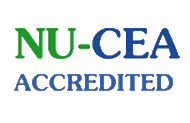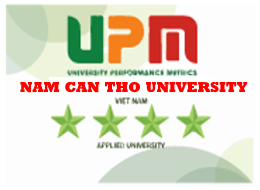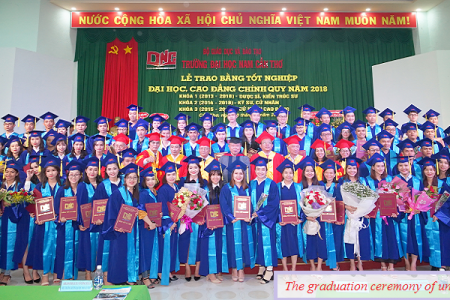Apr 19,2023
Faculty of Mechanical Engineering (FME)
FACULTY OF MECHANICAL ENGINEERING
(FME)
1. INTRODUCTION TO FME
The Faculty of Mechanical Engineering (FME) was founded on December 26, 2017 by Decision No. 65/QD CTHQT-HNCT of the Chairman of the Board of Directors of Nam Can Tho University (NCTU). Its main functions are to deliver top-notch university-level trained workforce. Currently, FME offers training programs in three fields: automotive engineering technology, power mechanical engineering, and an advanced degree in automotive engineering technology. FME also actively participates in scientific research and community service projects. FME has two departments: Department of Automotive Engineering Technology and the Department of Power Mechanical Engineering.
2. FUNCTIONS, MISSION
2.1. Functions
Manage and oversee the professional operations of the Faculty and its departments. Develop the faculty's strategic training plan in accordance with the school's overall strategic direction.
2.2. Mission
- Strategic development of teaching staff and training scale;
- Manage the teaching and research activities of related fields;
- Manage the training program's objectives to ensure that they are in line with the needs of the learners' outcomes, organizing scientific and technological activities, coordinating with science and technology organizations, production and business establishments, and associating training with science and technology, production, business, and social life;
- Coordinate with functional science and technology units to develop relationships on a national and international level in order to increase lecturers' capacity for teaching and scientific research;
- Coordinating activities to improve the training quality of the subjects in line with the general strategy of the University;
- Participate in recruiting, consulting;
- Managed tools, resources, and teaching aids;
- Organizing, managing, and grading the work of students according to academic year; awarding students in accordance with rules on management decentralization;
- Business collaboration aimed at consulting, job-hunting for graduates, taking part in experimental production service activities in accordance with the management faculty's expertise, performing other tasks as delegated by the rectors, and taking ownership of the work assigned.
3. FACULTY ORGANIZATION
FACULTY OF AUTOMOTIVE ENGINEERING TECHNOLOGY
ORGANIZATION CHART
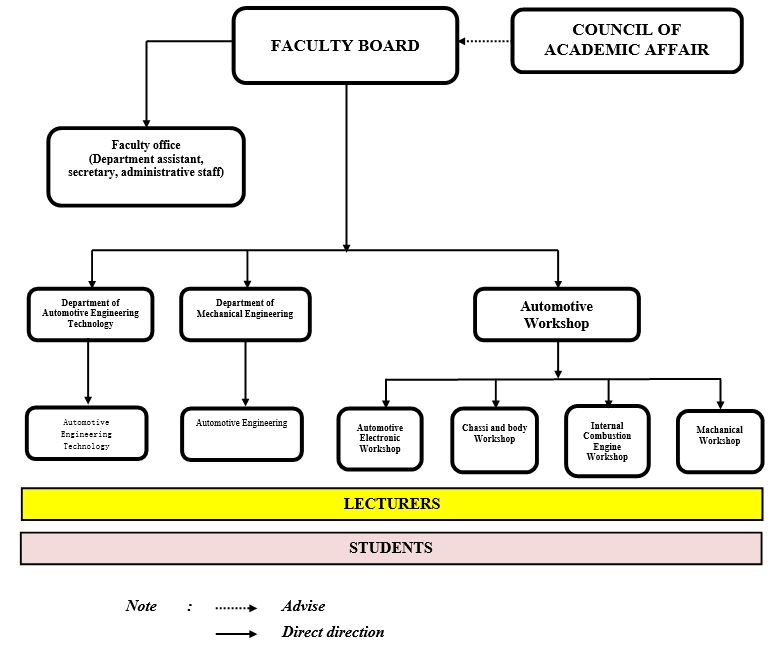
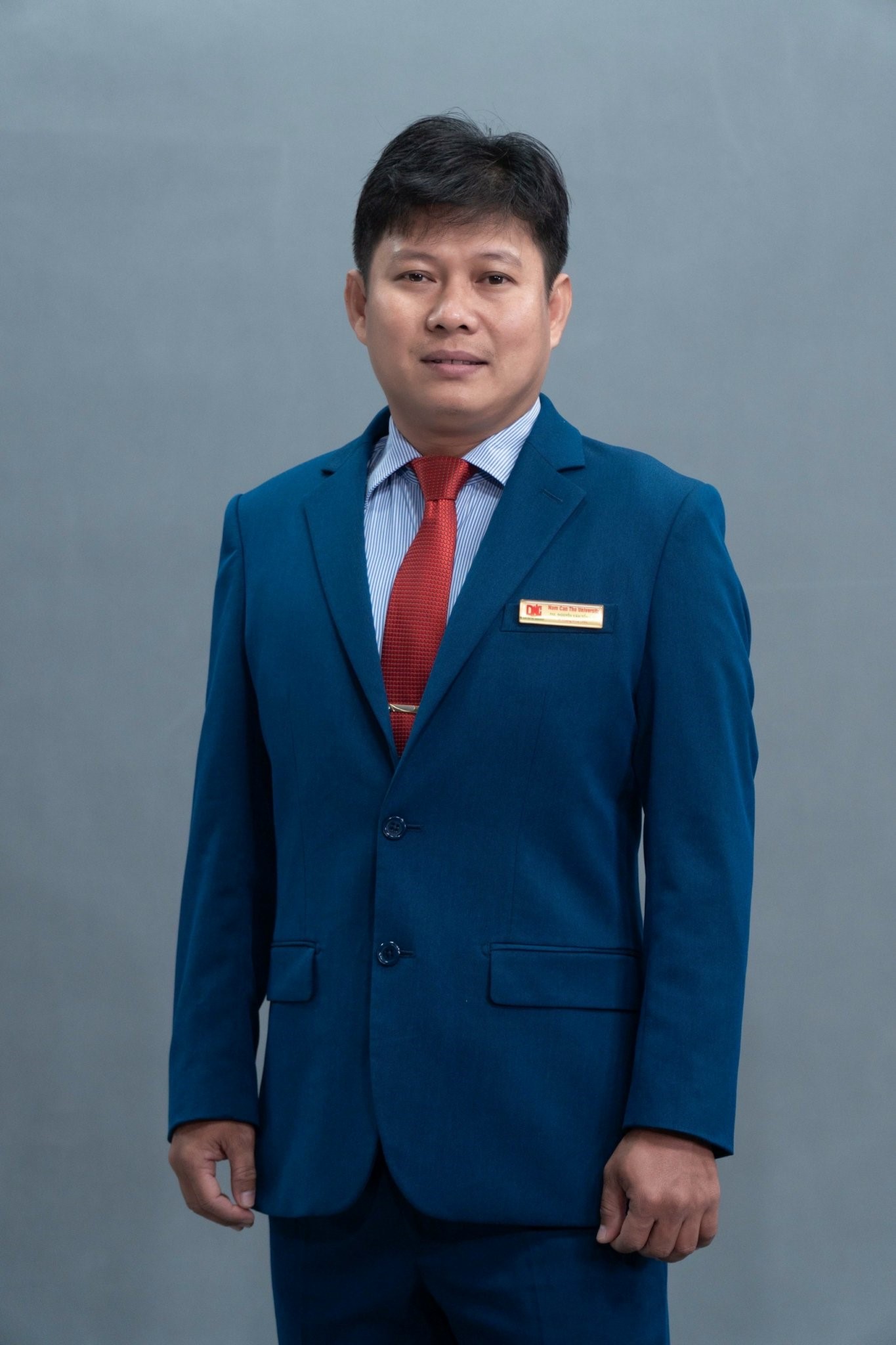
M.Eng.(PhD candidate) Nguyen Van Tong Em – Vice Dean of Faculty
Department of Automotive Engineering Technology and Department of Power Mechanical Engineering are the two departments that make up FME. The Faculty's administrative team is comprised of two deputy department heads and one vice dean.
About 2000 students are currently enrolled at FME, with 500 enrolling each year. The teaching staff at the faculty has steadily increased in both quantity and quality over the course of its five years of operation. FME currently has 34 full-time instructors at the moment, comprising of 2 Associate Professors, 1 Ph.D., 29 Masters, and 2 Bachelors.
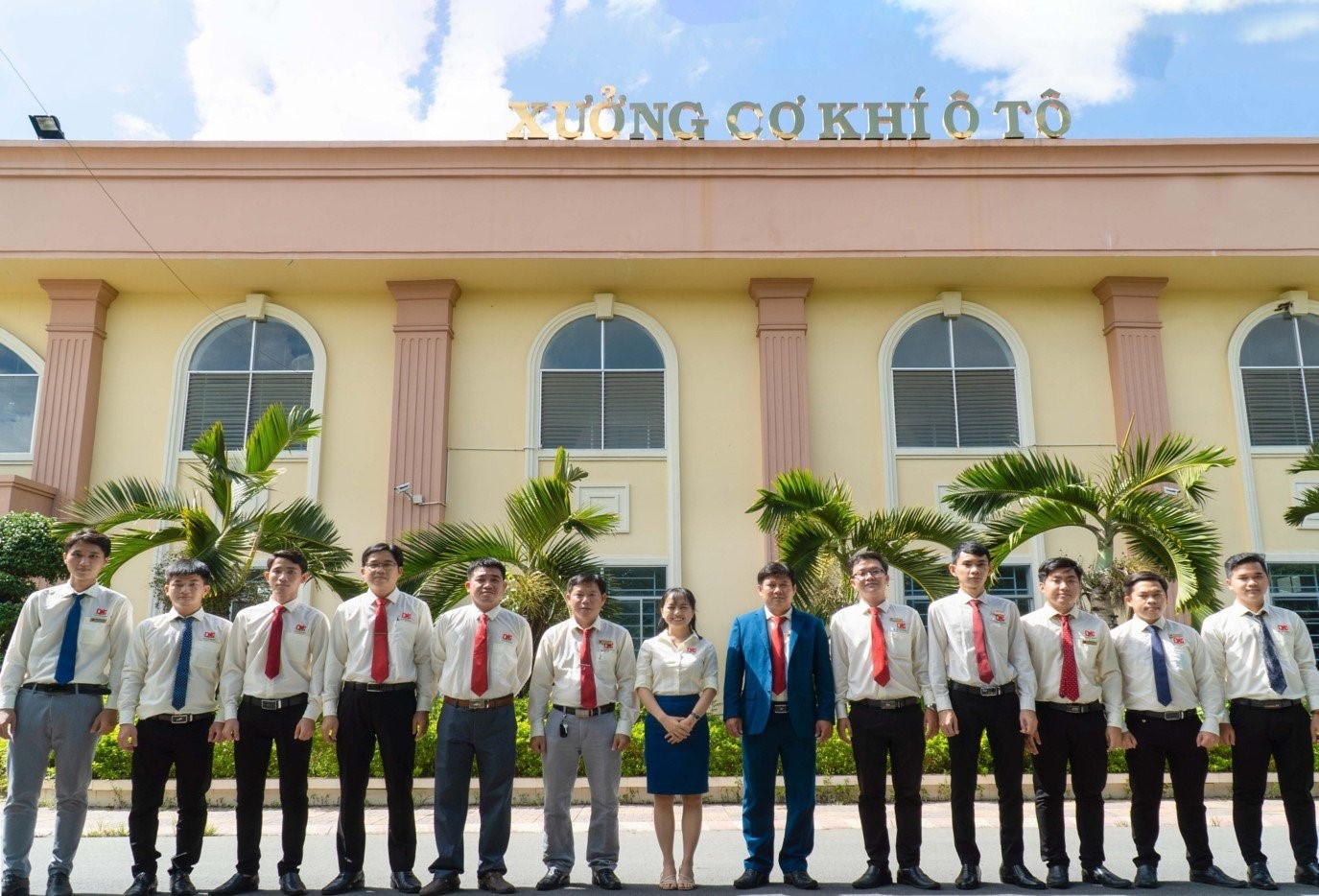
Faculty of Mechanical Engineering
4. ACTIVITIES
4.1. Typical activities
- Training and scientific research. In the last 4 years, the number of enrolled students has been stable with high enrollment scores;
- Training activities are adhered to the school's general teaching plan;
- Student assessment and training activities are administered by the Faculty. The Faculty functional departments evaluates grading based on training scores and annual study results, as a basis for granting scholarships to students.
- Actively participate in school activities according to common plans. In 2020, one of the staff of the Faculty participated in fuel-saving car competition in Hanoi and completed the task.
- Actively involved in research activities and launched a 9-seat solar electric car, serving the travel needs of lecturers and students.
- The Automotive Engineering Technology training program was awarded accreditation by the Ministry of Education and Training (editing and supplementing the contents as prescribed; completing the handing over of evidence to the school).
- Develop and complete training programs for the following fields: Automotive Engineering Technology, Dynamic Mechanical Engineering; a Master's program in Automotive Engineering Technology.
- Developed and updated standard output programs for the following fields: Automotive Engineering Technology, Power Mechanical Engineering; developed a professional practice program for each training fields.
4.1. OUTCOME
4.2.1. Some typical outcome
- Successfully building a professional practice program for the branch of the Faculty of Management;
- Completed a research project in 2018-2019 on designing and manufacturing 9-seat solar electric vehicles. Students have 7 scientific research works for study. Nominate a fuel-saving car competition team organized by Honda Vietnam in Hanoi and complete the competition round.
- Successfully organized the National Science Workshop: "New technology in modern cars" in 2021. Successfully organized the School-level symposium "Connecting businesses and job positions" of graduates in Automotive Engineering Technology” in June 2022.
- Making an annual plan and planning site visits for students from the previous year, such as visiting the ISUZU firm in 2018 and the Motor Show in 2019. There are often training sessions on soft skills, sales abilities, and communication skills with Motul and Total in 2019 and 2020.
- In July 2020, Honda Company in Hanoi held the final round of the Honda EMC Eco-Fuel-Saving Driving Contest. Five students and one lecturer from the Faculty took part.
4.2.2. Party committee and Communist Youth Union
- Nguyen Van Tong Em, Nguyen Hoang Viet, and Tran Thi My Linh are three members of the faculty that took part in the Communist Party of Vietnam's era activities at Nam Can Tho University. The University's Communist Party, University Rector Board, the University Chairman has designated the Communist Youth Union (CYU) as one of our major organizations. The activities of CYU are interested:
- The CYU delegation has participated in the DNC Student Speech Association Movement and achieved many high achievements. The delegation has organized 5 times the traditional sports conference of the Faculty (academic year 2017-2018, academic year 2018-2019, academic year 2019-2020, academic year 2020-2021 and academic year 2021-2022).
- On April 24, 2021, the delegation held the Mister Mechanical Competition 2021.
- In 2018, the faculty delegation took home the gold medal at the Olympiad in political theory, Ho Chi Minh ideology, and Vietnam's maritime and island borders. Additionally, the faculty developed the annual 5 merits student movement to encourage participation among many of its students, and it was humbling to receive the Prize for Student of 5 Merits at both the DNC and Can Tho City level.
5. DEVELOPMENT ORIENTATION
5.1. Development Goals
Create a fair scale that has better training efficiency and quality tying closely the duties associated with training to those associated with scientific and technical research and application, with professional and professional training to that associated with political, ideological, and professional education, and with the training of human resources to those associated with the job market and employment. In the Mekong Delta.
5.2. Training development
The Faculty development strategy primarily focuses on training development that preserve and continuously enhance the quality of educational opportunities in all areas while expanding training-related disciplines and occupations and raising the training scale; ensure the professional credentials and practical skills of human resource as well as training related to social requirements, and global production methods.
5.2.1. Training scale
The training scale of the Faculty of Dynamic Engineering is determined from the human resource needs for industries and occupations in the fields of Automotive Engineering Technology, Dynamic Mechanical Engineering for the Mekong Delta region, the southern region, and the whole country. FME always pays attention to the conditions to ensure the training quality as well as the development orientation of the school. By 2025, the scale will reach more than 3000 students, and by 2030, the scale will reach 4500 students.
Table 1. Annual training scale
|
No. |
Type of education |
Annual scale |
|||||
|
2020 |
2021 |
2022 |
2023 |
2024 |
2035 |
||
|
1 |
Graduate |
0 |
0 |
50 |
50 |
100 |
150 |
|
2 |
Undergradute |
629 |
708 |
800 |
900 |
1000 |
2000 |
|
|
Total |
629 |
708 |
850 |
950 |
1100 |
2150 |
5.2.2. Training fields
Currently, the FME has two training programs at university level, and 01 major at Master's level. In order to increase the scale of training to meet social needs, along with consolidating the development of existing professions, FME continues to open new training disciplines and professions in the field of engineering technology. The roadmap for opening new training professions is determined on the basis of the development of the Faculty's teaching staff and the ability to invest in the development of facilities, equipment, management capacity and other conditions of the University;
Table 2- Training professions and roadmap to open professions and occupations
|
No. |
Training fields |
Enrollment start year |
|
A |
Postgraduate |
|
|
1 |
Automotive Engineering |
2022 |
|
B |
Regular University |
|
|
1 |
Automotive Engineering Technology |
2017 |
|
2 |
Dynamic Mechanical Engineering |
2019 |
|
C |
Industry expected to open new |
|
|
1 |
Electric Vehicle Engineering Technology |
2023 |
|
2 |
Aeronautical Engineering |
2024 |
5.2.3. Quality of Education
The quality of education is considered a vital factor for the Faculty, so the development process of the Faculty in all fields, especially the training field, must be associated with training quality assurance.
Regularly carry out the work of building, adjusting, updating, and perfecting curricula, text books, and teaching materials. Strengthening teaching management, learning management, examination, testing, and assessment.
5.3. Science and technology development
Promote scientific research, and strengthen cooperation with enterprises to carry out scientific research. Improving the quality of scientific research, focusing on scientific research in both real and intangible products such as articles and intellectual property. By 2025, on average, each scientific staff with a doctorate degree will be in charge of at least one scientific task at all levels, publish at least one article in a domestic scientific journal, and the whole Faculty has at least 10 Science and technology topics for lecturers and 5 science and technology topics for students from school level and above are accepted. Expand the scale of scientific conferences and seminars; Conference topics focus on solving problems to improve training quality and develop Faculty
5.4. Development of Lecturers and Managers
Developing faculty and management staff is identified as a key task, an important premise for the successful implementation of the faculty development orientation. The objective is to build a contingent of lecturers and administrators with good numbers, good professional qualifications, creative capacity, innovative thinking, good ethics, good health, and good intentions. self-control, and self-responsibility, and really love the job.
5.4.1. Number of Lecturers
According to the faculty's training development orientation, the student scale will be 3000 students by 2025, and 4500 students by 2030; the number of newly opened professions and professions is 3. With the increase in student flow and the number of training professions and professions, the teaching staff must also increase in both quantity and quality to meet the requirements of the task.
5.4.2. Quality of Lecturers
The target set is that by 2025, 100% of lecturers will have postgraduate qualifications, of which 15-20% will have doctoral degrees, 1-2 lecturers will be associate professors, and 5-10% will have doctoral degrees.
5.4.3. The task of training, receiving the team every year
In order to have a team of the same quantity and quality, FME needs to recruit new students every year and send them to training with a quantity appropriate to the scale.
5.4.4. In terms of organizational structure, apparatus
To ensure the implementation of the planning goals by 2025, it is expected that there will be changes and adjustments to some parts of FME's organizational structure to suit the requirements. management such as the establishment of the Department of Electric Vehicle Engineering Technology.
5.5. Development of facilities and equipment
Regarding the orientation of developing training in the direction of application and specific training professions of the school, the investment in purchasing machinery and equipment for teaching and learning is a must to improve the quality of training. Investment equipment is diversified in types to meet multidisciplinary training requirements.
5.6. Solutions to achieve goals
- Implement training associated with scientific research, activity associated with the practice, and training associated with production.
- Increase investment in facilities and equipment for training.
- Build laboratories and equipment for scientific research.
- Strengthen business cooperation to improve the quality of training programs and students' knowledge and skills.
- Increase funding for scientific research. Encourage and create a mechanism for lecturers to participate in implementing higher-level scientific research projects such as provincial and ministerial levels. Promote scientific research among students.
- Increasing investment in curriculum development, identifying the curriculum as the core of the training process.
- Fostering and improving foreign language skills for lecturers.
